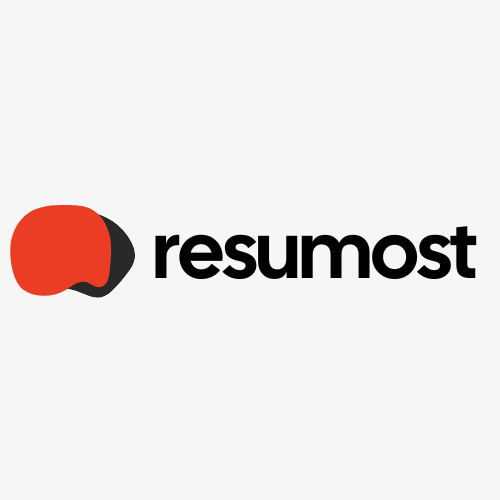Skills vs. Experience: Which is better?
It's the classic job-seeker's dilemma. We break down whether skills or experience will give you the edge and show you how to leverage both for a winning application.
The Case for Skills: The Engine of Your Potential
Think of skills as your professional toolkit. They are the specific capabilities you possess that allow you to perform a task. Without the right skills, even a decade of experience in a related field might not be enough. They generally fall into two categories.
Hard Skills: Your Technical Toolbox
These are the teachable, measurable abilities required for a role. They’re often job-specific and can be proven with a certification, a degree, or a portfolio.
Examples include:
- Programming languages (Python, JavaScript)
- Data analysis and visualization
- SEO/SEM marketing
- Graphic design software (Adobe Creative Suite)
- Fluency in a foreign language
Hard skills are your entry ticket. If a job requires you to be a master of Excel pivot tables, no amount of unrelated experience will make up for that gap.
Soft Skills: The Glue That Holds It All Together
These are the interpersonal and character traits that dictate how you work and interact with others. In today’s collaborative workplaces, soft skills are more critical than ever. They are harder to measure but are often what separates a good candidate from a great one.
Top soft skills employers crave:
- Communication (written and verbal)
- Teamwork and Collaboration
- Problem-Solving and Critical Thinking
- Adaptability and Flexibility
- Leadership
- Time Management
Soft skills demonstrate that you can thrive within a team and contribute positively to the company culture.
The Power of Experience: The Proof in the Pudding
If skills are the engine, experience is the proven track record. It’s tangible proof to an employer that you’ve successfully applied your skills in a real-world setting.
Experience shows a hiring manager:
- You can deliver results: You haven't just learned a skill; you've used it to achieve goals.
- You understand the workplace: You know how to navigate office dynamics, manage deadlines, and work within a team structure.
- You are a lower risk: Hiring is an investment. Someone with a proven history is often seen as a safer bet than an unproven candidate.
Experience provides context to your skills. It’s the difference between saying "I know how to code in Python" and "I used Python to develop a script that automated data entry, saving my previous company 10 hours of manual work per week." Which one sounds more compelling?
So, What's the Definitive Answer?
The truth is, it’s not a competition. The ideal candidate presents a powerful combination of both. However, the balance of importance shifts based on your career stage.
- For Entry-Level Roles & Career Changers: Skills often have the edge.
When you lack direct experience, employers focus on your potential. They want to see that you have the foundational hard skills to learn the job and the soft skills (like adaptability and a strong work ethic) to grow with the company. This is where you emphasize coursework, certifications, volunteer projects, and transferable skills from other jobs.
- For Mid-to-Senior Level Roles: Experience becomes non-negotiable.
At this level, employers expect you to hit the ground running. They are hiring you for your proven ability to solve complex problems, lead teams, or manage significant projects. Your resume should be dominated by quantifiable achievements from past roles. Your skills are assumed; your experience is what sets you apart.
How to Showcase Both for Maximum Impact
The real magic happens on your resume and in your interviews, where you weave these two elements into a compelling story. Don't just list them separately; connect them.
Use the STAR method (Situation, Task, Action, Result) to frame your accomplishments:
- Situation: Briefly describe the context.
- Task: Explain what you were responsible for.
- Action: Detail the specific skills (hard and soft) you used.
- Result: Quantify the outcome. What value did you create?
Example:
"I increased organic blog traffic by 40% in 6 months (Result) by conducting keyword research and implementing a new on-page SEO strategy (Action)." This single sentence showcases experience (increasing traffic) and skills (SEO, research).
Crafting a narrative that perfectly blends your skills and experience is an art. Your resume must tell this story clearly and concisely to grab a recruiter's attention in seconds. If you're struggling to find the right balance, using a professional tool like Resumost can help you build a polished resume that highlights your unique strengths and gets you noticed.
The Final Verdict
Stop thinking of it as Skills vs. Experience. Start thinking of it as Skills x Experience. They multiply each other's value.
One without the other is incomplete. Skills give you the ability, but experience provides the proof. Your goal as a job seeker is not to choose one over the other, but to masterfully demonstrate how they work in harmony. Focus on building both, and more importantly, learn how to articulate their powerful connection. Do that, and you'll be exactly what employers are looking for.
© 2026 Resumost.
We love that you're reading our work! Please note that this content is our own. If you'd like to share or re-post it, please reach out to us for permission first. Unauthorized scraping of this site is not permitted.

The Resumost Team
Resumost instantly creates a compelling, professional letter based on your newly tailored resume and the specific job you're targeting.
